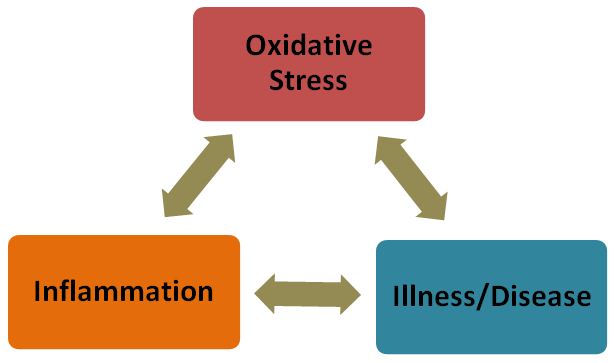
Close

The media, health blogs and Twittersphere have recently highlighted the negative consequences of a diet high in sugars and refined carbohydrates. The overwhelming consensus appears to be that this is a new “phenomenon” or “discovery” and that previous advice has always been in contradiction to the strong message now being disseminated. Let’s debunk this by posting the below article, copied verbatim, that was written by one of our Dietitians and published in The Business Day all the way back in 2010- 5 years ago. Dietitians have cautioned the public for many years about the dangers associated with excessive intake of sugars and refined carbohydrates. The key is to include good quality, high fibre carbohydrates in the right quantities as part of a balanced diet. Enjoy this blast from the past!

Sugar, not so sweet after all!
That third teaspoon of sugar that you added to your fourth cup of coffee this morning might just be the reason you develop a chronic disease in the future. Even though you are convinced that there is no way you could survive without sugar, considering you have a “sweet tooth” and would absolutely not make it past 10am without sugar loaded energy boost, you need to start considering the consequences of your “sugar crutch”. Sugars are freely available and you can easily consume large amounts of sugar without even realizing it. Would you spoon 17 teaspoons of sugar into a bowl and eat your way through it? I am sure even the thought of it would leave you feeling rather queasy. The reality is that if you ate a standard size packet of wine gums you would be doing exactly that.
Many foods contain sugar and most consumers don’t even know where to start looking for these hidden sugars. Research has shown that most of the added sugars in our diet is consumed in the form of beverages, which makes up 45% of total sugar intake. Baked products and cereals contribute a further eighteen percent of sugar intake while sweets and confectionery products contribute 11% of sugar intake.
Food labels will usually indicate the amount of sugar in a food product, the sugar content is listed under the carbohydrate section as sugar is considered to be a carbohydrate. When you are reading the label it is important to note how many grams of sugar are in the product, as each five grams is equivalent to a teaspoon of sugar.
In our modern day toxic environment free sugars need to be regarded as the enemy. Now more than ever research is indicating the negative health effects associated with the consumption of copious amounts of sugar. The World Health Organization lists the excessive consumption of sugar and refined carbohydrates as a high risk dietary practice because of the enormous impact that the latter has on health.
There are many negative effects associated with high intakes of sugar, oxidative stress, inflammation, nutrient dilution and obesity are only the tip of the “sugar iceberg”.
 Oxidative stress and inflammation
Oxidative stress and inflammation
When we consume large amounts of sugar the cells in our body are flooded with glucose. When the cell is flooded with glucose the cell becomes damaged and free radicals form the same ones that you get from smoking or lying on the beach without sunscreen for hours. This damage is referred to as oxidative stress and is linked to inflammation, increased risk for the development of chronic disease and effects the body’s immune functioning.
Nutrient dilution
Another problem associated with the consumption of  excessive amounts of sugar is nutrient dilution. A diet that is high in sugar will be low in nutrient quality because even though sugar contains lots of energy, it contains very little micronutrients (vitamins and minerals), which are necessary for optimal health and disease prevention. Nutrient dilution happens when sugary foods or beverages take the place of healthier nutrient packed foods like fruits and vegetables.
excessive amounts of sugar is nutrient dilution. A diet that is high in sugar will be low in nutrient quality because even though sugar contains lots of energy, it contains very little micronutrients (vitamins and minerals), which are necessary for optimal health and disease prevention. Nutrient dilution happens when sugary foods or beverages take the place of healthier nutrient packed foods like fruits and vegetables.
Studies have indicated that obesity and sugar intake are linked. This association is attributed to the fact that sugar is very energy dense and contains many kilojoules but however has a low satiety value, leaving individuals feeling hungry and unsatisfied after they eat foods that contain lots of sugar. People therefore eat relatively large amounts of high sugar foods to feel satisfied; this then leads to excessive amounts of sugar and kilojoules being consumed at the same time, which can lead to weight gain and obesity.
How much sugar is too much?
Firstly, sugar is most definitely not a necessary component of a healthy diet and does not need to be included as a source of energy as often believed by all the “sweet tooth’s” out there. All food provides energy and a balanced diet that contains fresh fruits and vegetables, unsaturated fats, lean protein, whole grain carbohydrates and low fat dairy will provide enough energy to get you through the day.
Reducing sugar intake
It is vital that we all evaluate our current sugar intake and make an effort to reduce our total sugar intake. The following tips will provide you with some practical solutions for reducing your sugar intake. 
admin@nutritionalsolutions.co.za
Bryanston: (011) 463 5502
Waverley: (011) 023 8051/2
Pretoria: (011) 463 5502/074 808 2130
Paarl: (011) 463 5502 / 084 571 8009
JHB South: (010) 035 4800